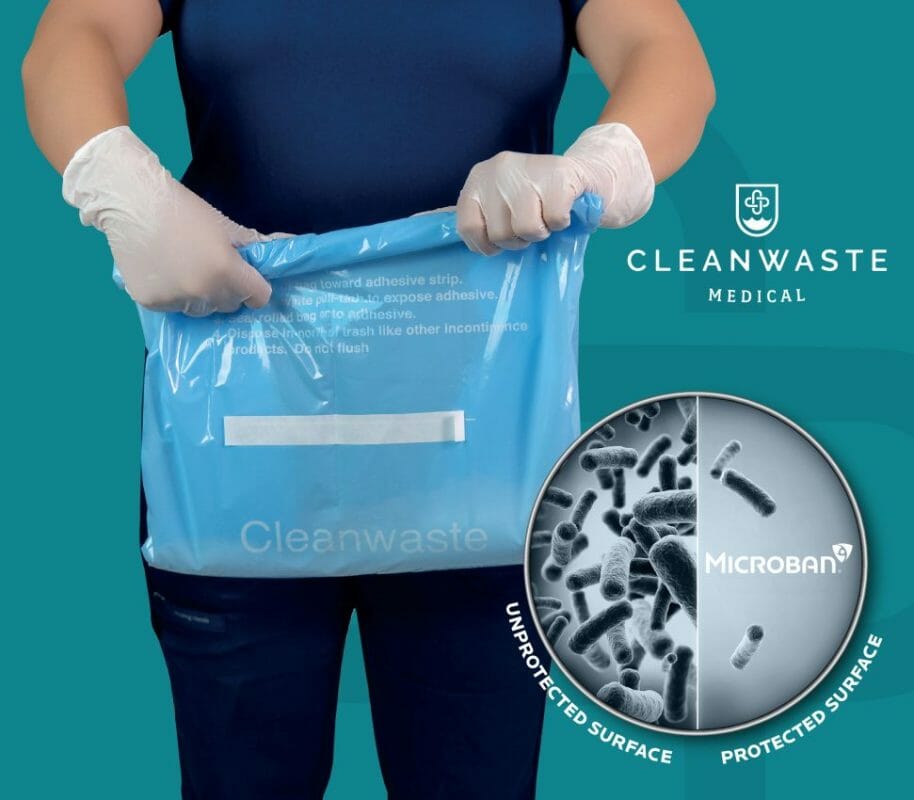Microban International is pleased to unveil a new partnership with Cleanwaste Medical to develop the Sani-Bag+ with built-in Microban® antimicrobial product protection. This industry-leading antimicrobial technology helps to protect the commode and bedpan liners from the growth of odor-causing bacteria, and complements Cleanwaste Medical’s proprietary formulation of deodorizing technology and NASA-developed absorbent gel polymer to create waste management solutions that are cleaner and more discreet.
The Sani-Bag+ has been meticulously designed and engineered with Microban technology to address the pressing need for clean and user-friendly disposable commode and bedpan liners in healthcare settings. The addition of innovative Microban® antimicrobial technology sets a new industry standard, further elevating the functionality of these bags to provide a fresher, more comfortable and more dignified experience for the user.
Michael Ruby, President at Microban International, commented:
“Microban is extremely proud of its partnership with Cleanwaste Medical, which brings together the expertise of both companies to deliver a practical and reliable solution for clean waste management. With over 30 years of industry leading experience, Microban’s antimicrobial technologies enhance the cleanliness of these liners by helping to prevent the growth of bacteria, ensuring fresher, cleaner and more convenient solutions for consumers and professionals.”
Sam Alhmad, National Sales Manager at Cleanwaste Medical added:
“We are very excited to partner with a trusted company of Microban’s caliber, and develop a line of antimicrobial Sani-Bag+ products that truly fulfill an unmet need, setting us apart from our competitors. These bags have been carefully designed to deliver a solution with enhanced antimicrobial performance that revolutionizes the user experience and is easily disposed of to prevent contact with waste. Microban® antimicrobial product protection is the perfect addition to these products, marrying up with our proprietary odor-neutralizing and waste absorbance technologies to make these liners the go-to choice for healthcare settings.”


